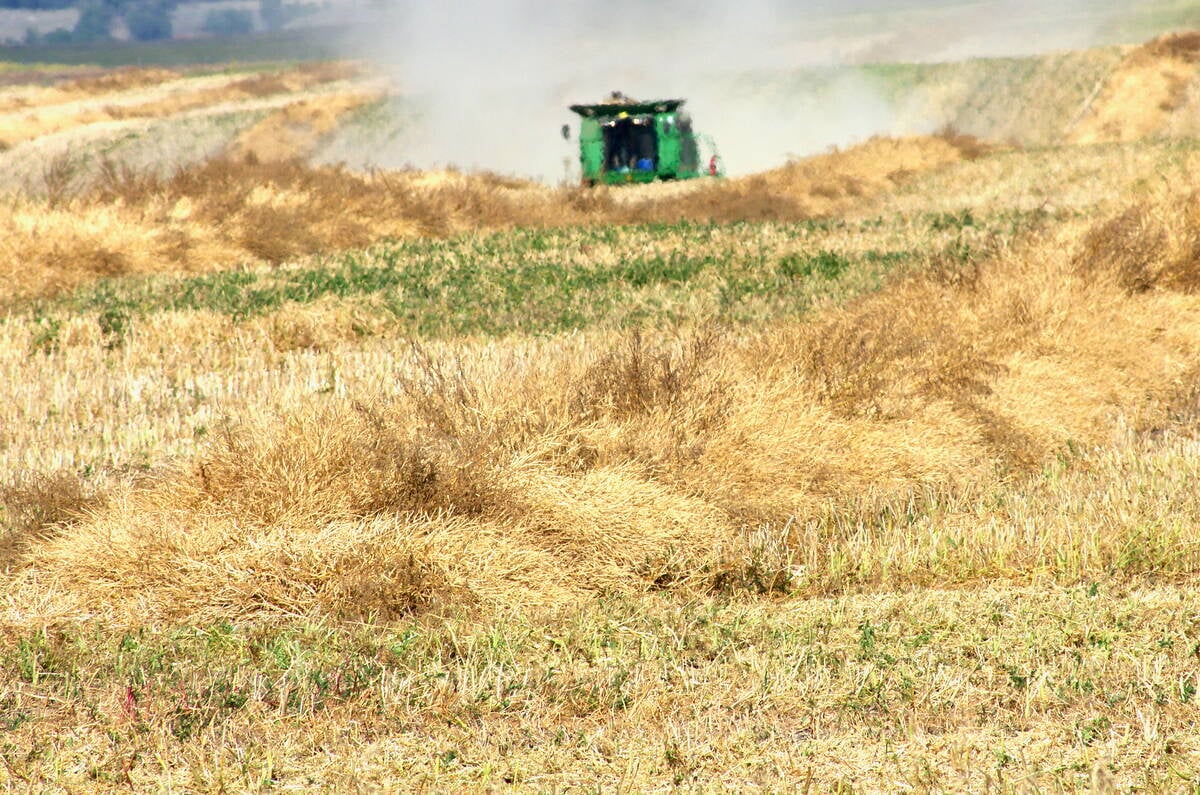EDMONTON – The United States was set to open the border to low risk Canadian meat July 1, but that plan was halted by Japan’s insistence that any Canadian beef in the U.S. must be identifiable, says an American agriculture consultant.
“From what I understand, that just slammed the brakes on anything that might have been in the immediate future of some sort of positive announcement,” Richard Anderson, senior vice-president of Sparks Companies, told the Alberta Beef Producers semi-annual meeting June 18.
Anderson said his company’s network of contacts within American industry and government sensed the border opening was expected soon.
Read Also

Manitoba searches for Plan B on canola oil exports
A new report explores Manitoba’s current canola oil trade and possible alternative markets to the U.S.
“That was the tone that seemed to be developing, very encouraging, our people thought. I was told the feeling was a favourable decision was imminent.”
Then Terry Stokes, chief executive officer of the American National Cattleman’s Beef Association, sent a letter to U.S. agriculture secretary Ann Veneman saying the reopening of the border should take into account the effect on other U.S. trading partners.
Allowing even a minimal amount of Canadian beef into the U.S. may jeopardize the Americans’ $2 billion annual beef sales to Japan since the U.S. has no system to trace the meat, Stokes suggested.
Ever since Japan had its own outbreak of bovine spongiform encephalopathy two years ago, it has instituted a strict domestic traceability system and wants any countries selling it beef to do the same.
“We did get our hands on communications from NCBA to the USDA indicating they would like the U.S. to take a stance that ‘we’re not going to unilaterally make a decision without consideration of the other trading partners,’ ” said Anderson.
The discovery of BSE in Canada provided the ideal event for Japan to push its meat suppliers to begin developing a trace-back system.
“To us, we feel this is just an opportune time for them to promote that agenda. They can use a little leverage at this stage of the game and possibly generate some commitment from the USDA, or whom-ever, to say ‘yes, we will start talking seriously about being able to provide you with the trace-back capabilities you’re looking for,” said Anderson, who added that Japan and South Korea will ultimately impose trace-back requirements.
“It’s a complex set of negotiations going on, probably a bit of a poker game in terms of different people positioning people,” he said.
Gary Sargent, general manager of Alberta Beef Producers, said it’s understandable Japan is using political pressure to push its agenda. Two years after Japan’s BSE outbreak, neither Canada nor the U.S. has reopened its borders to Japanese meat even after Japan instituted a strict traceability system.
Canada may have to re-evaluate its import requirements from countries that have had a BSE outbreak, Sargent said.
“Sometimes you get into tit for tat in some of these diplomacy issues and reassess your own position. Did we make the right decision for our consumers and did we make the right decision for trading relationships?
“We probably made a good decision from our consumer perspective but did we do the right thing for trade relations?”
A team of Japanese agricultural experts arrived in Canada June 23 to review the country’s response to BSE.














